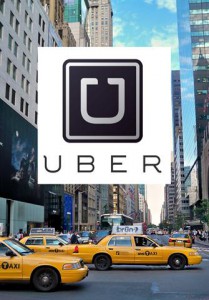Uber Lawsuit May Determine the Future of Ridesharing Liability
Ridesharing Service Avoids Liability for a Girl’s Death
Uber is a startup company offering a mobile app that connects passengers and drivers. The company has received criticism for failing to provide insurance to its drivers when the drivers are not carrying passengers.
 The criticism against Uber gained wide exposure when the driver Syad Muzaffar struck and killed a six-year-old girl named Sofia. Although her family filed a lawsuit, they will not receive compensation because Muzaffar was not covered by any insurance.
The criticism against Uber gained wide exposure when the driver Syad Muzaffar struck and killed a six-year-old girl named Sofia. Although her family filed a lawsuit, they will not receive compensation because Muzaffar was not covered by any insurance.
At the time Sofia was struck, Muzaffar was not driving a customer. Instead he was in between jobs, looking for a customer on his Uber app. From Uber’s Terms of Service agreement, Uber is basically denying liability for everything. Uber even stated that its insurance does not cover the driver when the driver does not have a customer in his car. Moreover, in California, the Public Utilities Commission does not require drivers to carry commercial insurance. As a result, there was an insurance gap and Sofia’s family will not be able to collect from any insurance company.
This potential insurance gap tragedy is posing many new concerns, and may be setting a new legal precedent.
Will Uber’s Terms of Service Be Valid in a Court of Law?
Uber is doing business and making a profit from many residents of California. Uber cannot possibly think it will be able to deny all liability in every situation possible. Their Terms of Service is unconscionable. It is not fair, and it harms the residents of California. Since California courts has an interest in protecting its residents, hopefully, California courts will not hold the Terms of Service agreement valid.
In states other than California, Uber drivers are typically required to carry commercial insurance. The only reason why it is not required in California is because the state does not require the drivers to do so. A potential solution may be to create a new state regulation and require all commercial drivers to carry their own commercial insurance.
What Does This Mean for Other Ridesharing Apps?
This is not a problem unique to Uber. Other ridesharing apps, such as Lyft, followed Uber’s footsteps and have similar terms of service agreements. Essentially, there are many other occurrences of insurance gap situations. Other ridesharing apps may have to change their terms of service agreements as well and buy additional insurance.


Comments